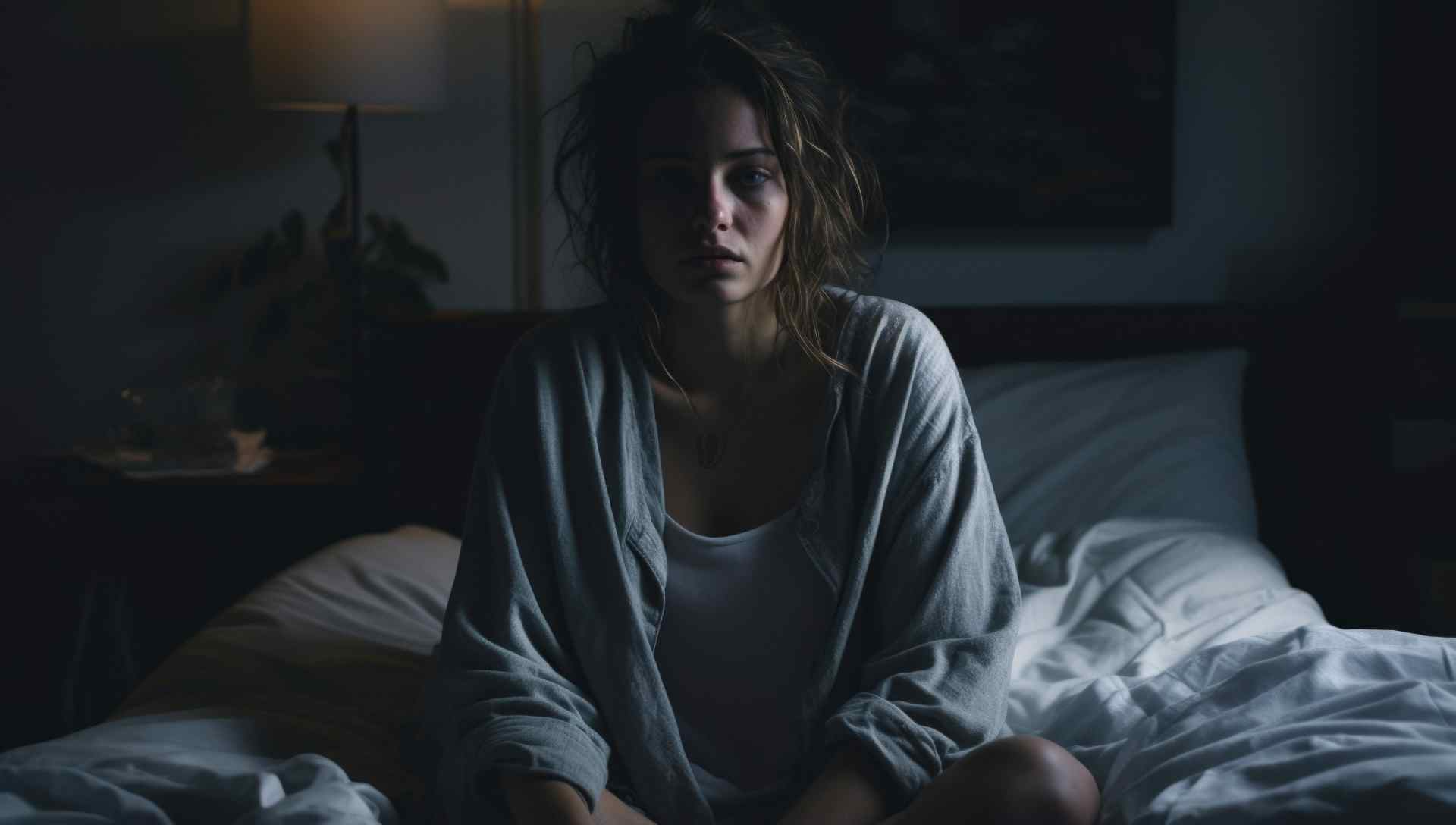Everyone Deserves To Blossom
Nunc tincidunt egestas velit nec efficitur. Duis vestibulum volutpat nibh sed consequat. Maecenas tincidunt, arcu vel iaculis cursus.
When you are woken up from sleep at night by the feeling of intense fear, terror, or discomfort this can be described as a nocturnal panic attack, or panic attack at night.
They can leave you feeling disoriented and anxious and may seem to happen without any trigger.
In this article, you will read about:
Nocturnal panic attacks are characterised by an unexpected, sudden feeling of fear that wakes you from sleep. You may wake up in a state of panic, experiencing physical reactions such as rapid heart rate, sweating, trembling, shortness of breath, and an overwhelming feeling that something terrible is about to happen.
NPAs primarily affect adults and are different from night terrors. What is characteristic is that people are awakened from sleep and are aware of the feelings and panic attack symptoms.
People experiencing night terrors are often unaware they’re having them. After an episode of screaming, trashing, or even walking, they will fall back to sleep completely unaware of this when they wake up in the morning. Most often, they affect children.

They are relatively common among those who are already suffering from some anxiety disorder. It can happen among people without a history of panic attacks but very rarely.
According to studies published in SpringerLink, IntechOpen – Open Science Open Minds, Anxiety Help, between 40-70% of people with Panic Disorder (PD) experience NPAs. The criteria and definitions are not standardised across these studies, this is the reason why the numbers in estimates vary.
Though it is not fully understood, panic attacks at night are believed to result from brain activity during sleep, similar to daytime panic mechanisms.
The exact cause is not fully understood, but it is probably a result of a combination of different factors, such as genetic, biological, and environmental.
Underlying factors may include genetics, stress, lifestyle, medication and substance abuse, and preexisting physical health problems. Let’s get into more detail when there is a higher risk of panic attacks at night:
Experiencing a nighttime panic attack can feel overwhelming, but there are ways you can calm yourself down and regain control.
By following these preventive steps, you can reduce the number of NPAs.
The diagnosis involves a thorough evaluation by a healthcare professional.
The process typically includes:
The treatment of nocturnal panic attacks will utilise the same methods used for panic attacks and disorders.
Psychotherapy: Cognitive Behavioral Therapy (CBT) encourages the development of coping skills, methods of countering nighttime anxiety, and how the connection between thoughts, feelings and behaviours affects your anxiety and panic. Therapy modalities such as Acceptance and Commitment Therapy (ACT), Dialectical Behaviour Therapy (DBT), and others can also be explored.
Medication: Anti-anxiety medication and antidepressants, such as selective serotonin reuptake inhibitors (SSRIs), can help reduce the symptoms of panic attacks. These include Fluoxetine, Paroxetine and Sertraline.
Most commonly, they happen during late stage 2 to early stage 3 non-REM (rapid eye movement) sleep stages. Most often during the transition from deep sleep to lighter sleep stages.
Even though at the time it may seem like it, no, you cannot die from a panic attack in your sleep. The fear of death is a common symptom, but the psychological effects, while intense, are not a cause of death.
This being said, chronic panic attacks can have a negative impact on health.
Individuals with Post-Traumatic Stress Disorder (PTSD) and those who experience nocturnal panic share several similarities, including insomnia, reduced sleep efficiency, and sudden awakenings during sleep. While PTSD sufferers often wake due to nightmares, a significant number of awakenings may occur without any clear internal or external cause.
To better understand the relationship, we provided information about the overlap of the symptoms, contributing factors, diagnosis, and treatment of the two conditions.
First, let’s talk about feeling on edge or hyperarousal. People suffering from PTSD are easily startled and are constantly on edge. This can be one reason why NPAs appear.
Second, nightmares and flashbacks of trauma while sleeping are not uncommon for people suffering from PTSD. These dreams can cause the onset of NPAs.
Third, when a person is not getting enough quality sleep, they cannot rest properly. This makes them susceptible to NPAs. PTSD causes problems with getting enough sleep, like difficulties falling asleep and waking up very often during the night.
People suffering from PTSD have been exposed to one or more traumatic events. This can have a significant impact on their mental health. Consequences can be persistent fear and anxiety which can lead to the appearance of nocturnal panic attacks.
Anxiety and fear that come hand in hand with PTSD are key components of panic attacks. This state of heightened anxiety can affect sleep, leading to sudden panic attacks during the night.
To avoid reliving the trauma, people suffering from post-traumatic stress disorder engage in avoidance behaviours, including avoiding sleep. This can have the opposite effect since avoiding sleep to avoid nightmares and panic attacks can make the quality of sleep even worse.
If you or someone you know is experiencing nocturnal panic attacks and are seeking professional support, Psychology Blossom is here to help.
Our dedicated team of professional psychologists and counsellors offers compassionate and effective support to help you manage your anxiety and lead a fulfilling life.
Contact us today to learn more about our services and start your journey towards better mental health.
Message: +65 8800 0554
Phone: +65 8686 8592
We’re Here To Help You Blossom Into The Best Version Of Yourself.